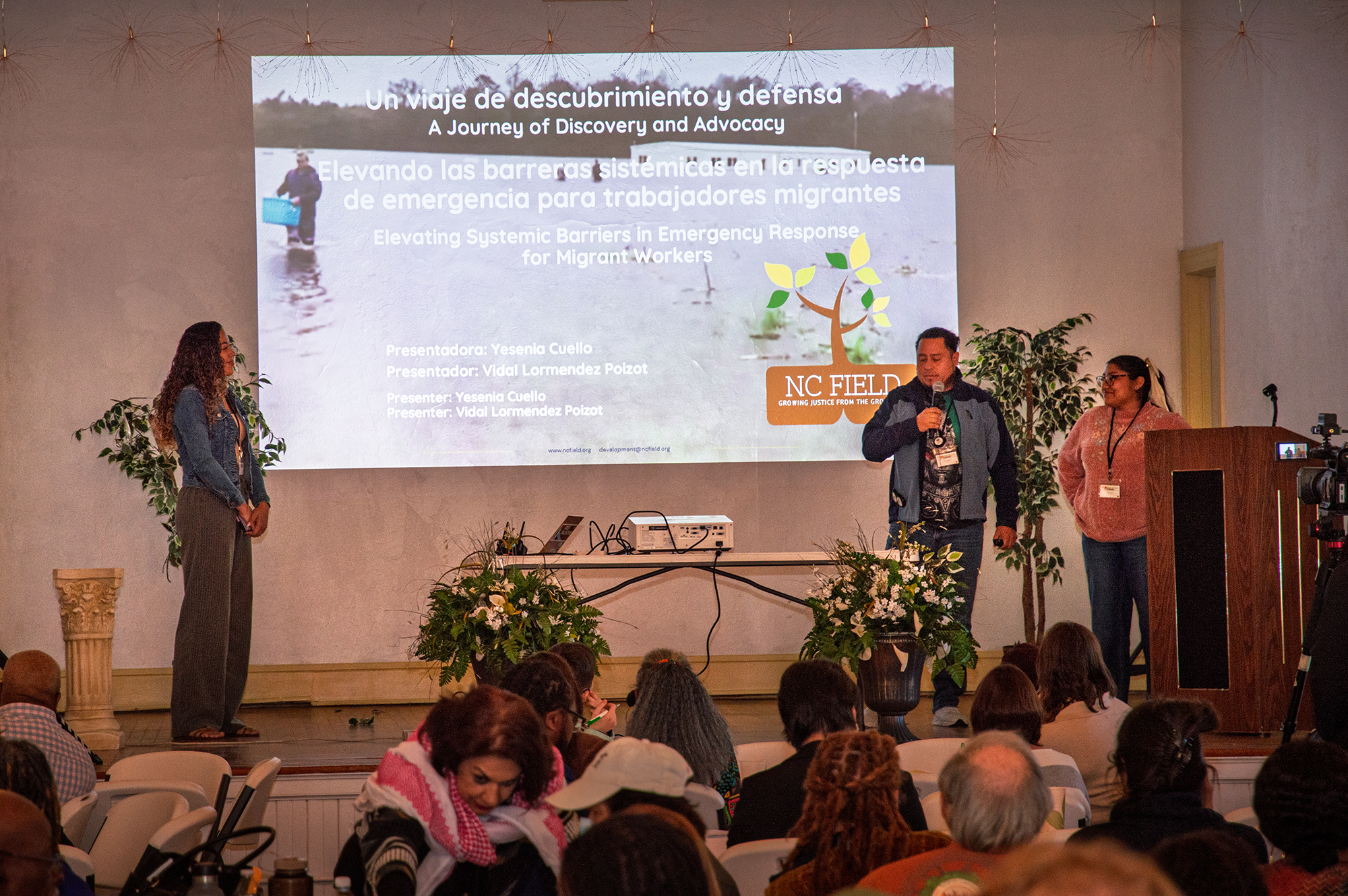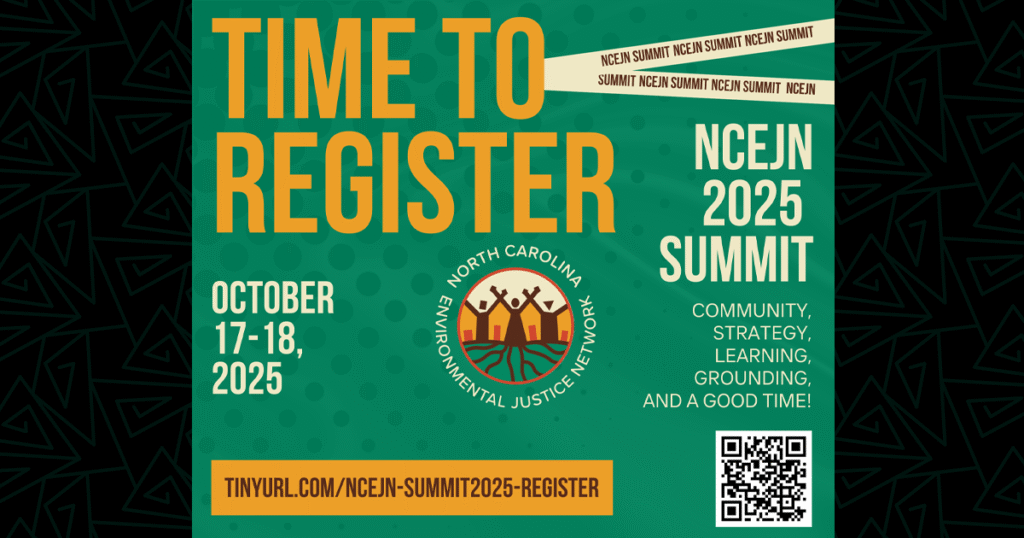Yesenia Cuello, Executive Director, NC FIELD, Inc
For thousands of people employed in the multi-billion dollar industry of agribusiness across North Carolina, the phrase “environmental justice” often feels like a distant and abstract concept. Everyday environmental struggles, despite the profound ways it intersects with our lives, are so common we couldn’t identify most of them if you asked. For us, environmental justice is not about policy discussions or global movements we barely realize exist; it’s about practical, urgent issues that directly affect our health, stress levels, incomes, and the futures of everyone who eats.
Farmworkers everywhere need the world to prioritize the immediate health risks they face in their environments. Exposure to pesticides, poor air quality, and unsafe drinking water are daily concerns that have long-term consequences. Our access to healthcare is limited, and illnesses resulting from environmental hazards often go untreated. We wish people cared as much about us as they do about environmentally safe food supplies. Any effort to focus on enforcing safe pesticide practices, reducing harmful exposures, and ensuring clean water in rural communities should be a priority for us all.

NC Field Team Presententation at The NCEJN 2024 Summit in Whitakers, NC.
Living in food deserts, substandard housing in flood-prone areas or near industrial operations adds layers of stress to an already demanding life. Many in my community carry the weight of supporting families in the U.S. and abroad while navigating systemic barriers, like language, immigration status, and lack of transportation. When disasters strike—be it political demonization, emergencies requiring an ambulance, police, or evacuation, hurricanes or heat waves— support often fails to reach them in time, leaving them vulnerable and anxious about their safety. Addressing these gaps with realistic conversations and not shallow hand-wringing or willful ignorance that is inclusive would significantly reduce this stress and loss of life for the most essential workforce on earth.
Environmental challenges, such as extreme weather and crop failures, directly affect farmworkers’ earnings. When fields flood or temperatures soar, the work stops, leaving them without pay. Advocacy for livable wages, protections during extreme weather, and fair labor conditions tied to environmental policies could provide much-needed stability for their families.
Farmworker communities see environmental justice through the lens of their children’s current and future well-being. I remember during a youth project with Poder Juvenil Campesino (PJC) so many families repeated what they had been told: The chemical spray and dust was “food for the plants” and “won’t hurt anyone”. Many of us live in areas where schools are underfunded and environmental hazards, like contaminated soil, air or unsafe housing, impact kids’ health and development. Like everyone, they want their children to grow up in safe, healthy environments with access to education and opportunities, regardless of their race, ethnicity, parent occupations, or zip code. Investing in supplemental health services, health campaigns dedicated to their needs, clean water, safe housing, and educational resources in communities employed by agribusinesses in the region would be transformational for the next generation.

When the world talks about environmental justice, farmworkers hope the conversation expands to include their voices and lived realities. They want practical, community-driven solutions that protect their health, reduce their stress, stabilize their incomes, and nurture their children’s futures. For them, environmental justice is a pathway to dignity, opportunity, and hope.
The recent NCEJN conference marked a significant milestone by incorporating language interpretation for the first time, exemplifying a larger commitment to inclusivity and cultural relevance. This dedication allowed voices often excluded from environmental justice discussions to take center stage. I moderated a panel entirely in Spanish with English interpretation, ensuring community members’ perspectives were heard and understood clearly, regardless of your first language. It was an unforgettable experience, and one I feel certain will continue to be prioritized.
Language justice is more than a logistical consideration; it is pivotal to enabling communities with limited English proficiency (LEP) to engage fully and lead in finding solutions. At NC FIELD, the Asset-Based Community Development (ABCD) model depends heavily on community input and leadership. Our dedication to the idea of bilingual and bicultural staff and the return on that investment is tremendous as we engage with communities who take ownership of solutions in areas they are passionate about. Whether it’s addressing food insecurity, pesticide safety, helping to distribute meals, or making sure their neighbors know where they can access healthcare, and accurate health information – they lead the charge.
The NCEJN’s commitment to inclusivity created a welcoming platform for those most impacted by environmental injustice to share their challenges and contribute to meaningful change. It takes courage and vision to provide such spaces, and these types of efforts set a standard for how organizations can work towards a more inclusive future in a conference setting. Uplifting worker voices is a practice at NC FIELD, and we are grateful to see these values reflected in the broader environmental justice movement.























